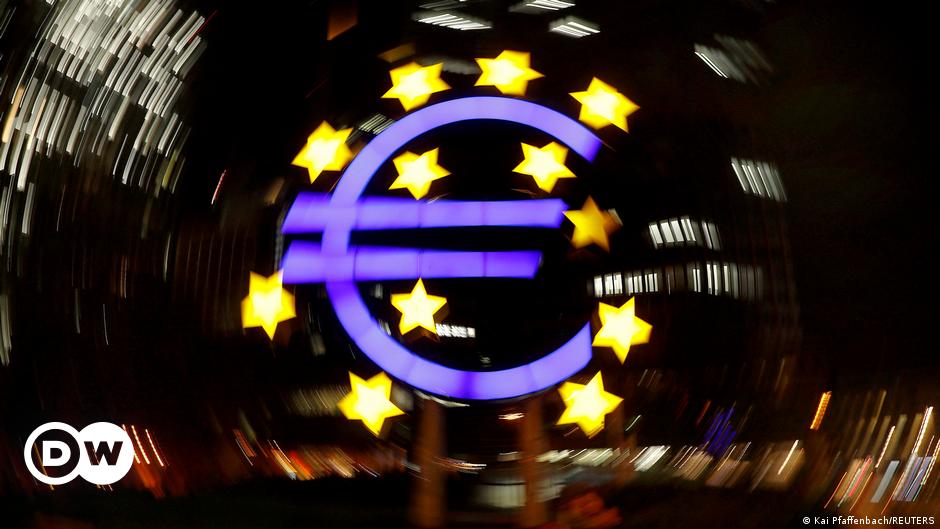The so-called Green New Deal is the flagship project of the current European Commission, led by President Ursula von der Leyen. The effort, which aims to make the 27 EU member states climate neutral by 2050, is estimated to require investments of up to 1 trillion euros ($1.9 trillion) per year.
That's a tall order even in good times, but the current situation is not good: Russia's invasion of Ukraine, along with energy supply shortages, rising inflation, labor shortages and slowing growth in Europe, have highlighted the need for increased security spending.
With many EU member states running budget deficits amid rising public debt, the question of how to finance this huge expenditure seems natural.
The 20 member states of the euro zone, which owns the single European currency, have even less room for additional spending: They must adhere to strict fiscal rules, including limiting annual national debt to no more than 60% of GDP and keeping government deficits to 3%.
Stability Pact — tough rules and little room for maneuver
Those limits were suspended during the COVID-19 pandemic but have since been reinstated. Countries that violate the fiscal rules of the so-called Stability Pact risk being penalized again, despite reforms adopted in February 2024 that allow for greater fiscal flexibility. Eurozone countries can now negotiate with the EU about how and when to restore fiscal order.
Greek Economy and Finance Minister Kostis Hadjidaki described the result of months of negotiations as a “typically European, but good compromise.”
But speaking to an audience at the Brussels Economic Forum (BEF) in May, he added a warning: “Fiscal prudence is imposed first and foremost by markets. If we ignore it completely, we may learn the lesson of Greece over the last decade.”
During the so-called European debt crisis of 2010-2012, Greece was heavily indebted and unable to borrow from financial markets, leading to an EU bailout package with severe austerity measures and a loss of fiscal sovereignty.
Ambitious goals target debt
Not everyone thinks fiscal prudence should now be a priority. Tea Jarque, a senior official at the European Trade Union Confederation, argues that climate spending is essential investment, not irresponsible consumption.
“You can no longer fool people by saying the Green Deal is a priority. If we are not willing to invest in it – if we impose austerity measures – then it is clearly not a priority,” she told the forum.
One way to ease EU countries' financing needs is to increase private investment. The EU is a giant, with 450 million people and an annual economic output of 17 trillion euros, but it's a dwarf when it comes to mobilizing private capital.
Danuta Hübner, a Polish economist and member of the European Parliament, lamented that the EU has yet to create competitive capital markets: “It's a shame. [the EU capital market] “Our market is much smaller than the US market which is twice the size. Not only is our market small, it is illiquid and highly fragmented,” she told a BEF panel, blaming national policies in member states for differing financial rules, from savings to taxation.
Paolo Gentiloni, the Italian EU Commissioner for Economic Affairs, wholeheartedly agreed with Huebner. “I don't think there is a single EU policymaker who would be against capital markets union,” he told the Brussels Economic Forum. But when finance ministers meet, “it's very difficult to take even the most limited steps towards that goal.”
Common debt financing
Another source of funding could come from EU joint borrowing, which was first attempted during the COVID-19 pandemic to partly finance large-scale stimulus packages.
Calls for EU-wide borrowing from member states' capitals have recently come from the economics commissioner himself, but Gentiloni prefers to call the debt instruments, formerly known as Eurobonds, “common instruments for common goals.”
“This was not even possible to discuss five years ago. It was a bizarre idea in European institutions. But it is possible now. I think it is urgent to establish how to use common tools for a common goal, which is investment,” he said.
However, issuing common EU debt has faced strong opposition from some countries, including Germany, the Netherlands and Finland, which fear sharing debt with economically weaker member states could downgrade their credit ratings.
Raising taxes for a greener future
Julia Cage, a professor of economics at Sciences Po in Paris, has proposed a direct EU wealth tax, which would make it harder for the rich and super-rich in the bloc to exploit loopholes in national tax systems.
“If we are too nice and don't take responsibility to make sure tax management and fiscal management work well, it won't work,” she told DW.
Cage said the wealthy should also shoulder more of the costs of tackling climate change. “There's some really good research, for example by the Global Equality Institute, that shows the wealthy pollute much more than the poor,” she said, noting that the wealthy's use of bigger cars, bigger homes, yachts and planes contributes significantly to global warming.
A progressive environmental tax that increases with an individual's carbon footprint, she argued, could hold the wealthy responsible for their emissions and distribute the economic burden of halting climate change more fairly.
This article was originally written in German.


